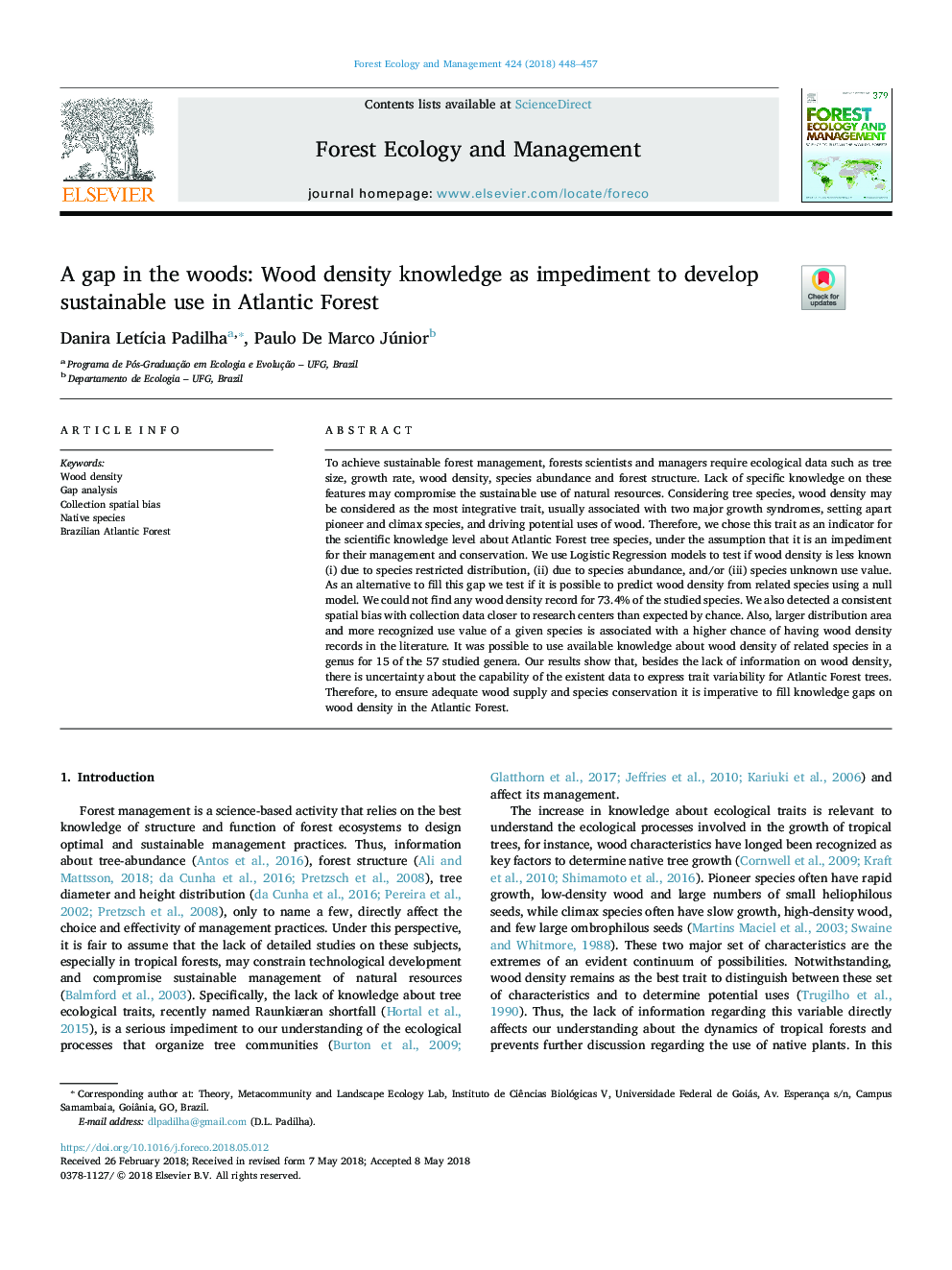| Article ID | Journal | Published Year | Pages | File Type |
|---|---|---|---|---|
| 6541618 | Forest Ecology and Management | 2018 | 10 Pages |
Abstract
To achieve sustainable forest management, forests scientists and managers require ecological data such as tree size, growth rate, wood density, species abundance and forest structure. Lack of specific knowledge on these features may compromise the sustainable use of natural resources. Considering tree species, wood density may be considered as the most integrative trait, usually associated with two major growth syndromes, setting apart pioneer and climax species, and driving potential uses of wood. Therefore, we chose this trait as an indicator for the scientific knowledge level about Atlantic Forest tree species, under the assumption that it is an impediment for their management and conservation. We use Logistic Regression models to test if wood density is less known (i) due to species restricted distribution, (ii) due to species abundance, and/or (iii) species unknown use value. As an alternative to fill this gap we test if it is possible to predict wood density from related species using a null model. We could not find any wood density record for 73.4% of the studied species. We also detected a consistent spatial bias with collection data closer to research centers than expected by chance. Also, larger distribution area and more recognized use value of a given species is associated with a higher chance of having wood density records in the literature. It was possible to use available knowledge about wood density of related species in a genus for 15 of the 57 studied genera. Our results show that, besides the lack of information on wood density, there is uncertainty about the capability of the existent data to express trait variability for Atlantic Forest trees. Therefore, to ensure adequate wood supply and species conservation it is imperative to fill knowledge gaps on wood density in the Atlantic Forest.
Related Topics
Life Sciences
Agricultural and Biological Sciences
Ecology, Evolution, Behavior and Systematics
Authors
Danira LetÃcia Padilha, Paulo De Marco Júnior,
